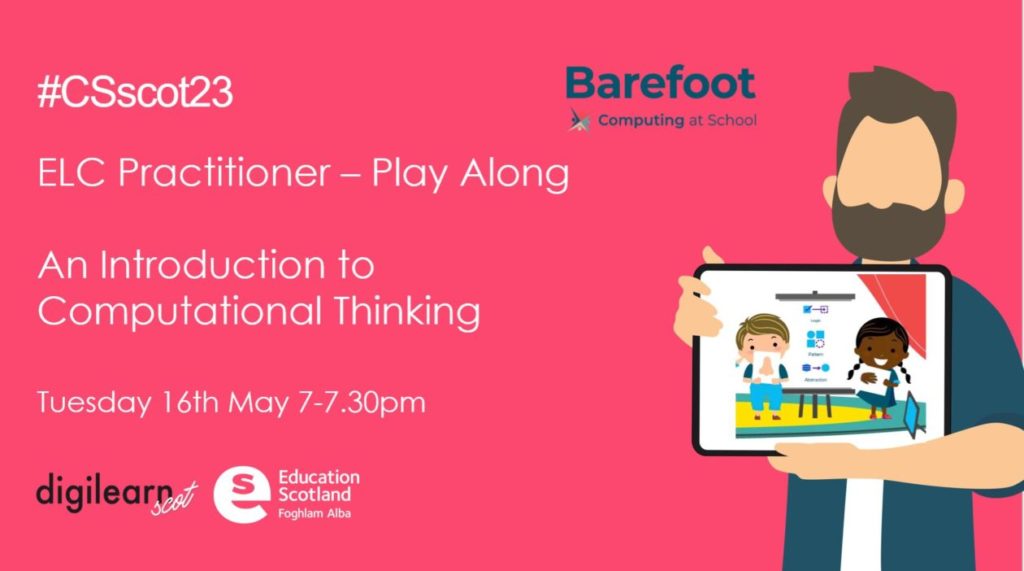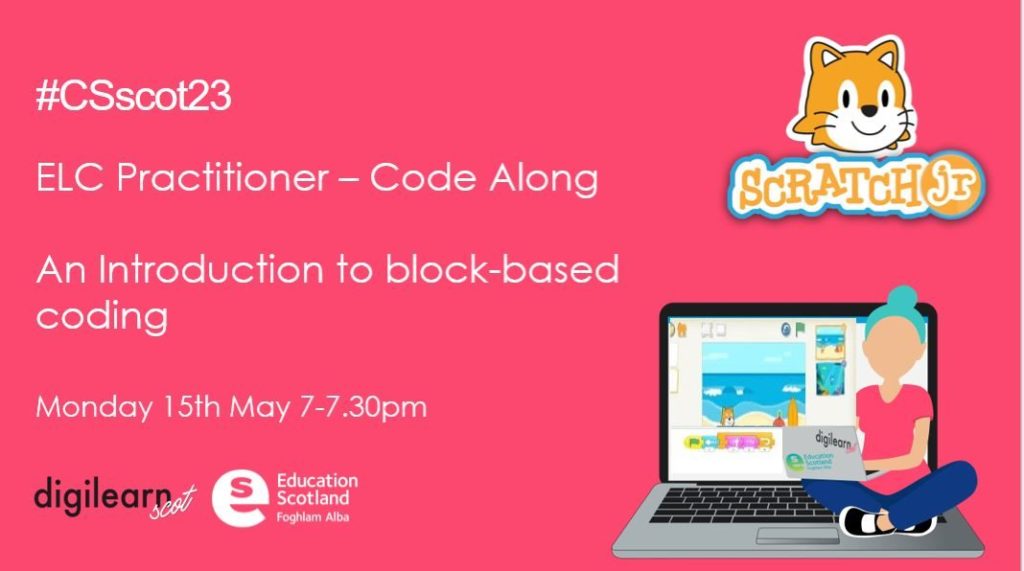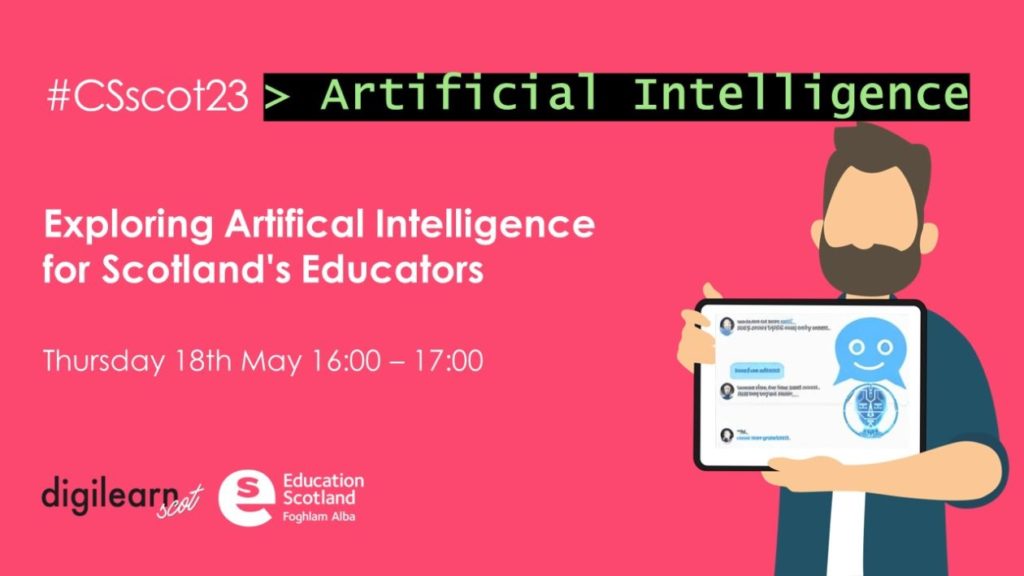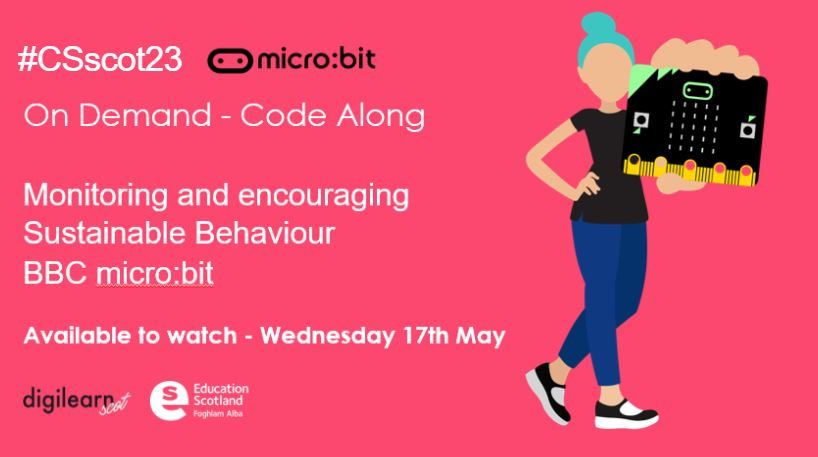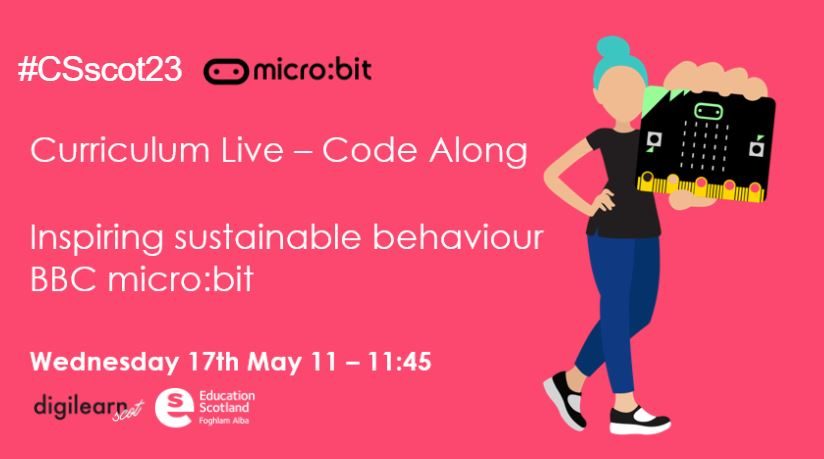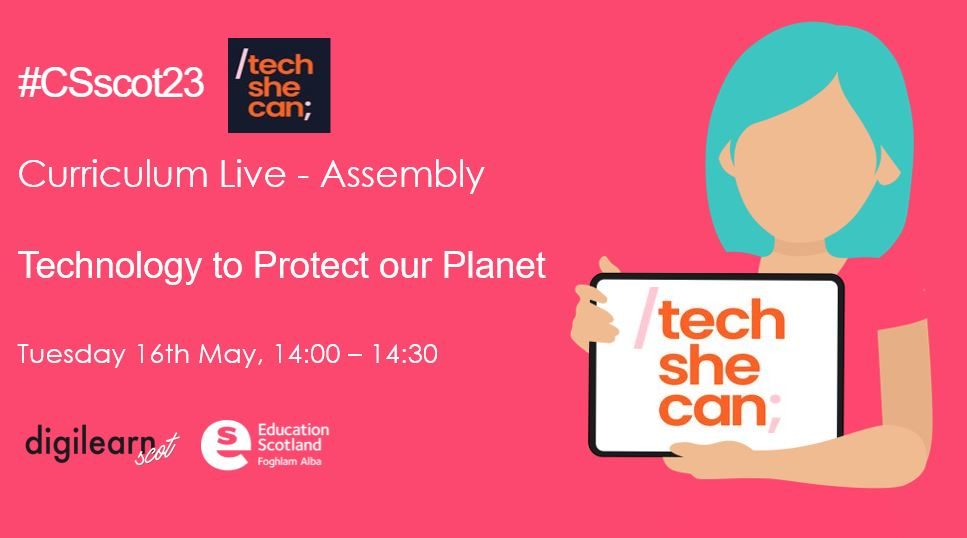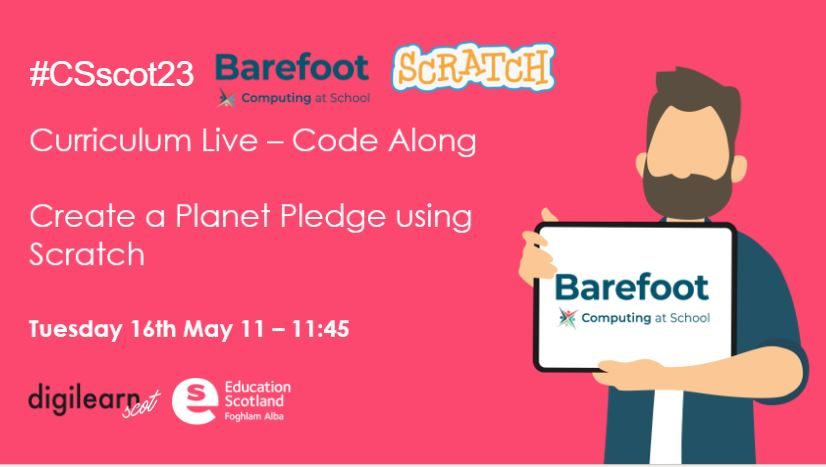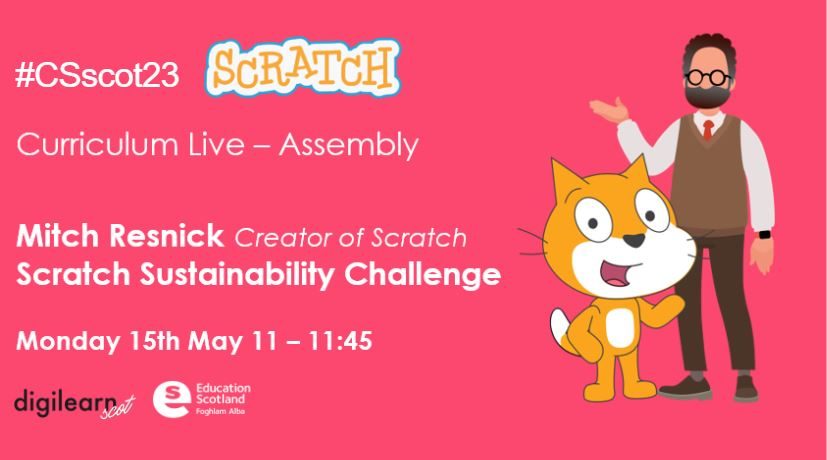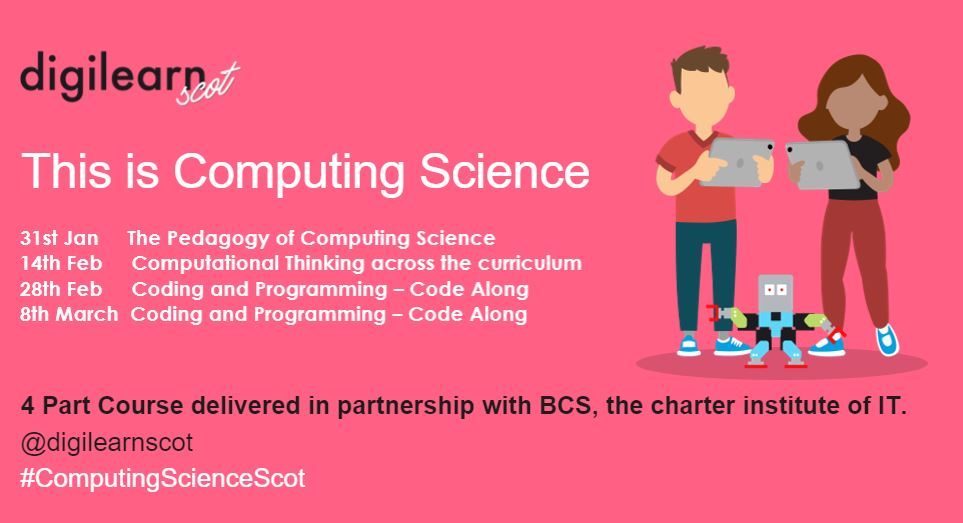Be part of #CSscot23 by joining the Education Scotland Digital Team in a short 30 minute evening ‘Play Along’ session and be introduced to the concepts and approaches of Computational Thinking with Barefoot Computing, through fun, interactive activities.
We use Computational thinking strategies in our everyday lives and may not even realise it! Computational thinking is about learning to solve problems, with or without a computer. These problem-solving skills not only support the computing science curriculum but also play a part in many other areas of the curriculum and our lives, from PE to storytelling, maths and baking! Join us to find out more.
This session is suitable for all practitioners working with early level learners across a variety of settings.
Please have a pen and paper and small piece of playdough/plasticine to hand, to take part in the hands-on activities.
Barefoot resources for early level learners can be accessed here. For more information about Barefoot please watch this short video.
